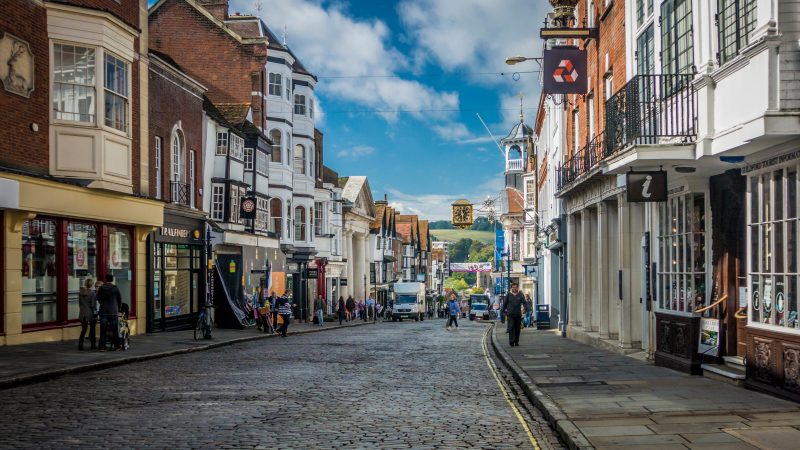
High street experts have welcomed Labour’s plans for the sector as bringing a “sense of hope” but expressed some concern about how the party may approach business rates reform, warning of potential “unintended consequences”.
In a panel event co-hosted by LabourList and The Shopkeepers’ Campaign, Labour’s James Murray described business rates as a “crucial factor” affecting high streets and reiterated Labour’s plan to scrap the current system and replace it with a “fully costed, fully funded system of business property taxation for the 21st century”.
The shadow financial secretary to the Treasury said the opposition is in the process of “developing our policy, having conversations with businesses and those affected about the detail”.
Murray told attendees: “That shifting of the burden away from the high street is going to be a crucial element that our new system will deliver. Because we want to support high streets, not just as places which are crucial for economic growth but also for their social value.”
“Alongside that shift away from the high streets, we want to make sure our new system incentivises investment, incentivises growth. We want to make sure that it’s fit for the 21st century,” the Labour frontbencher added.
The Shopkeepers’ Campaign chair Vivienne King described Murray’s comments during the event as an “optimistic message” about the high street, telling attendees: “I think you’ve given the high street a sense of hope there.”
She said she could “absolutely see” why Labour wants to abolish business rates but added: “Let’s just find a system that is actually a commercial property tax that replaces business rates, which is investor-friendly and is trader-friendly and it works for communities and it works for business investment at the same time.
“Let’s reduce the rate… let’s make the system simpler… and then we can encourage investment which breathes life back in in a natural and in an organic way and creates economic activity.”
She highlighted that The Shopkeepers Campaign has been calling for a reduction down to a 30% rate, adding: “Obviously, we recognise that Labour will want to get revenue, the same revenues, from any reform system. But our message would be: look at taxes that are appropriate for the modern day.”
“With a lower, fairer, broader and easier to understand commercial property tax system, I think the government of the future will be creating a system that is attractive and suitable for local communities and for businesses alike, and that’s got to be what we aim for,” she said.
British Retail Consortium corporate affairs director Stephen Bethel argued that Labour “are really trying to wrestle with the problem”, adding: “I think they don’t have all the answers yet and that’s fine, there’s a lot to work through.”
But he stressed that “the devil will be in the detail” voicing concern about potential “unintended consequences” of reform. “You could make a big difference by just tweaking the current system and taking out some of the strange things about the current system,” he told attendees.
Jerry Schurder – business rates policy lead at chartered surveyors and property consultants Gerald Eve – argued that the business rates system in its current form “has become unsustainable”, adding: “Without meaningful change, we’re probably going to see many more shops on the high street just closing their doors.”
But he acknowledged that the tax is “still a vital source of funding for local authorities” and “has worked pretty well for a very long time”, having “only reasonably recently” become “far too costly and much too complicated”.
“What is needed is fundamental reform, not tinkering, nor actually abolition, which would mean replacement with a totally new, non-property related tax,” he said.
Labour frontbencher Liz Twist – speaking in her capacity as co-chair of the all-party parliamentary group on the future of retail – argued that the current business rates system “places an unfair burden on small and high street businesses” and needs a “complete overhaul”.
The MP also highlighted the issue of Labour shortages within the retail sector, telling attendees: “Portions of the retail sector have become synonymous with insecurity, with people on zero-hours contracts and no guaranteed hours, which isn’t good if we want a thriving retail sector.”




More from LabourList
‘Energy efficiency changes must work for older private renters’
‘Labour’s creative destruction dilemma’
Economic stability for an uncertain world: Spring Statement 2026